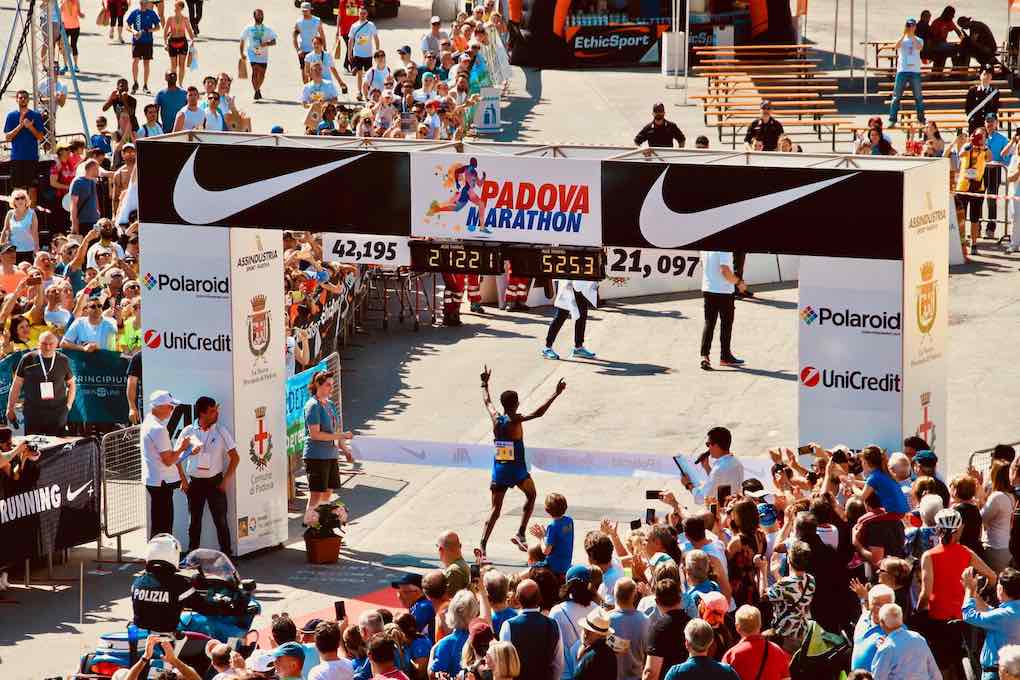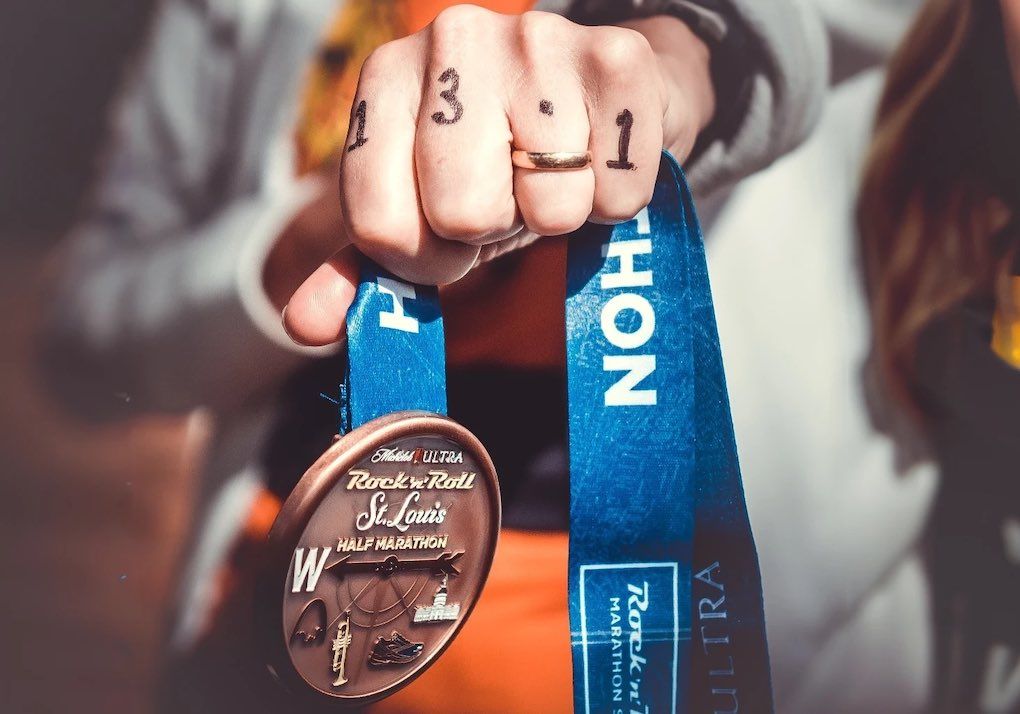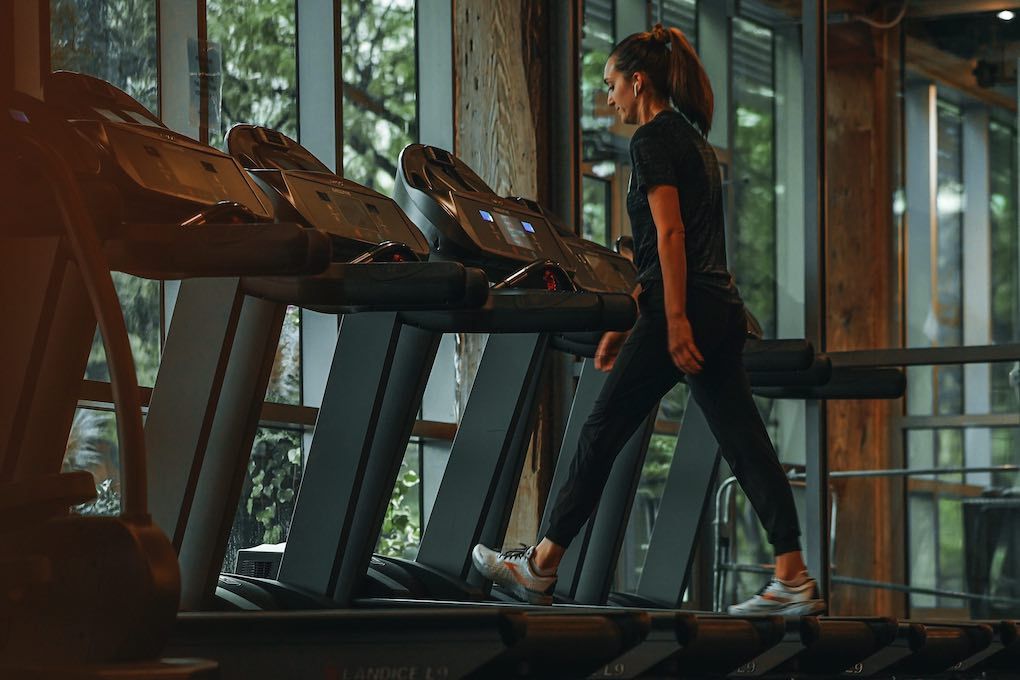"Chasing an “average” mile time can backfire. Push too hard and your training turns into a struggle, and small aches show up fast. Set the bar too low and you never build the speed you want.
The catch is that “average” depends on context, age, sex, running history, and whether you mean a one-off test or a race effort. We reviewed the top search results, cross-checked common claims, and built a simple way to compare paces without guesswork.
You’ll learn what counts as an average mile, how to estimate yours, and how to set a target that matches your current fitness. Then you’ll see practical fixes, workouts, and quick checks to validate progress. So what’s a realistic mile time for you?"
TAKEAWAYS:
How to Measure Your Mile Time So the Number Means Something
Before you compare yourself to any chart, lock down what “mile time” you’re measuring. Your best-effort mile (like a short race) will be faster than your easy-run pace. Pick one goal and stick with it so your progress is real.
For a simple benchmark, run a timed mile on a calm day when you feel fresh. Warm up with an easy jog for 10 minutes. Then do a few leg swings or walking lunges. Add two short pickups (about 20 seconds each) with plenty of walking between them.
Choose a measured route if you can. A standard 400-meter track is easiest, but a mile is a bit longer than four laps. If your track has a mile start line, use it. If you use GPS, avoid tall buildings. Turn off auto-pause. Use the same route each time.
Start the first half controlled. You should feel like you could hold the pace for another lap. Then tighten it up. Aim for a steady effort and finish the last quarter strong. Write down your total time. Keep lap splits if you have them, and note wind, heat, or hills.
New to running? Use run-walk intervals and keep the clock running. Retest every four to six weeks after a lighter week. Compare your new result to your old one first.
Methodology
It isn't easy to define a benchmark for health, as many individual factors influence your ability to pick up the pace and maintain speed. To address the average time it takes to run one mile for various age groups and experience levels, we analyzed 1-mile race results of the seven most significant running events in the US during 2019-2025. To ensure statistical significance and diversity, we analyzed races with more than 2'000 participants in California, Texas, Ney York, and Florida.
Please note, there is no versatile scale that can size any person. We're all unique, and the article encourages you to get better results with a one-mile run.

How Long Should It Take to Run a Mile For a Healthy Person
To define the average time it takes a healthy person to run a mile, we'll suppose that a regular human in an ordinary shape without chronic diseases gets into the top 75% of any significant race event. For example, if there are 2000 racers, the healthy person would overtake 500 runners and finish at least 1500th.
The time it takes a healthy person to run one mile is 9-11 minutes, regardless of age, gender, and fitness level. It equals the 5.5-6.7 mph speed on a treadmill and is 5 minutes faster than walking a mile. This is a good result for a person without decent sports background and special preparation.
Read also: How Long Should It Take to Run 3 Miles?
Average Mile Time by Age for Man vs. Women
A mile running time also varies by age. As we get older, our bodies naturally slow down. However, regular exercise and training make it possible to maintain or even improve your mile time and pace as you age.
To give you an idea of what a typical mile time might be, we analyzed the finish times of more than 15'000 runners of 1-mile public races. Here are some average times for different age groups and genders:
*The average mile times are calculated using the median function. Unlike the average, it considers the distribution between groups and better represents the "middle" pace.
Please note that running a mile as fast as possible is not the ultimate goal. Training without injury is much more critical. These are just averages, and everyone's body is different—some people may run the distance faster or slower than these averages due to various factors. We encourage you to compare to yourself in the past and compete with your personal best time and speed.

Read also: How Long It Takes to Run 10K?
How Long Does It Take a Beginner to Run 1 Mile
Suppose that a rookie runner overtakes half of the participants of a crowded race. For instance, if there are 2,000 athletes, the beginner will take 1,000th place or higher.
It will take 8 to 9 minutes to run a mile for someone new to running who jogs semi-regularly and prepares at least four weeks before the race. It corresponds to 6.7-7.5 mph speed on a treadmill.
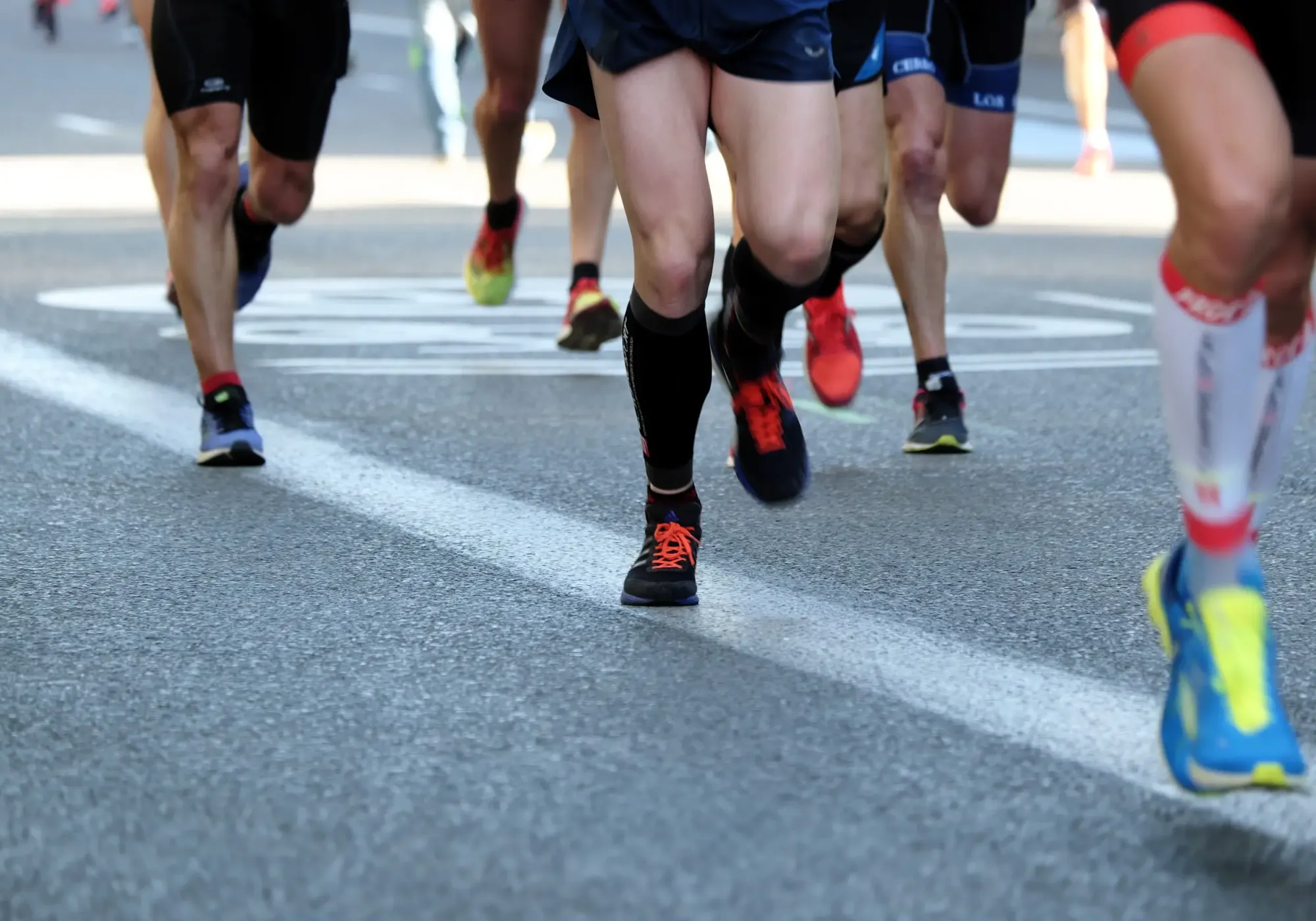
Read also: How Long Does It Take to Run a Half-Marathon?
The Average Time to Run a Mile For an Amateur Runner
Let's assume that an amateur runner gets into the top 20% of fastest athletes of a one-mile race. For example, in a running event with 2,000 participants, they will finish the 400th or higher.
It takes 6-8 min for an amateur runner to complete a mile race. This time equals the 7.5-10 mph speed on a treadmill. It is an excellent result for a person with several years of sports background and decent preparation. These athletes train 3-4 times weekly to improve their overall fitness and pace.

Read also: How Long Should It Take to Run a Marathon?
How Long It Takes to Run One Mile For a Professional Athlete
Let's consider that a professional runner belongs to 10% of the fastest one-mile racers. They are not elite athletes that compete for medals and set records but can get into the top 3 in their age/gender group. In our example, with 2,000 participants, the pro athlete would obtain at least 200th place.
A professional athlete takes 5 to 6 minutes to run 1 mile. This time corresponds to a treadmill speed of 10-12 mph. It is a great result for athletes with 3+ years of running experience. To achieve this result, they work out 4-5 times a week and log 30-40 miles for the same period.
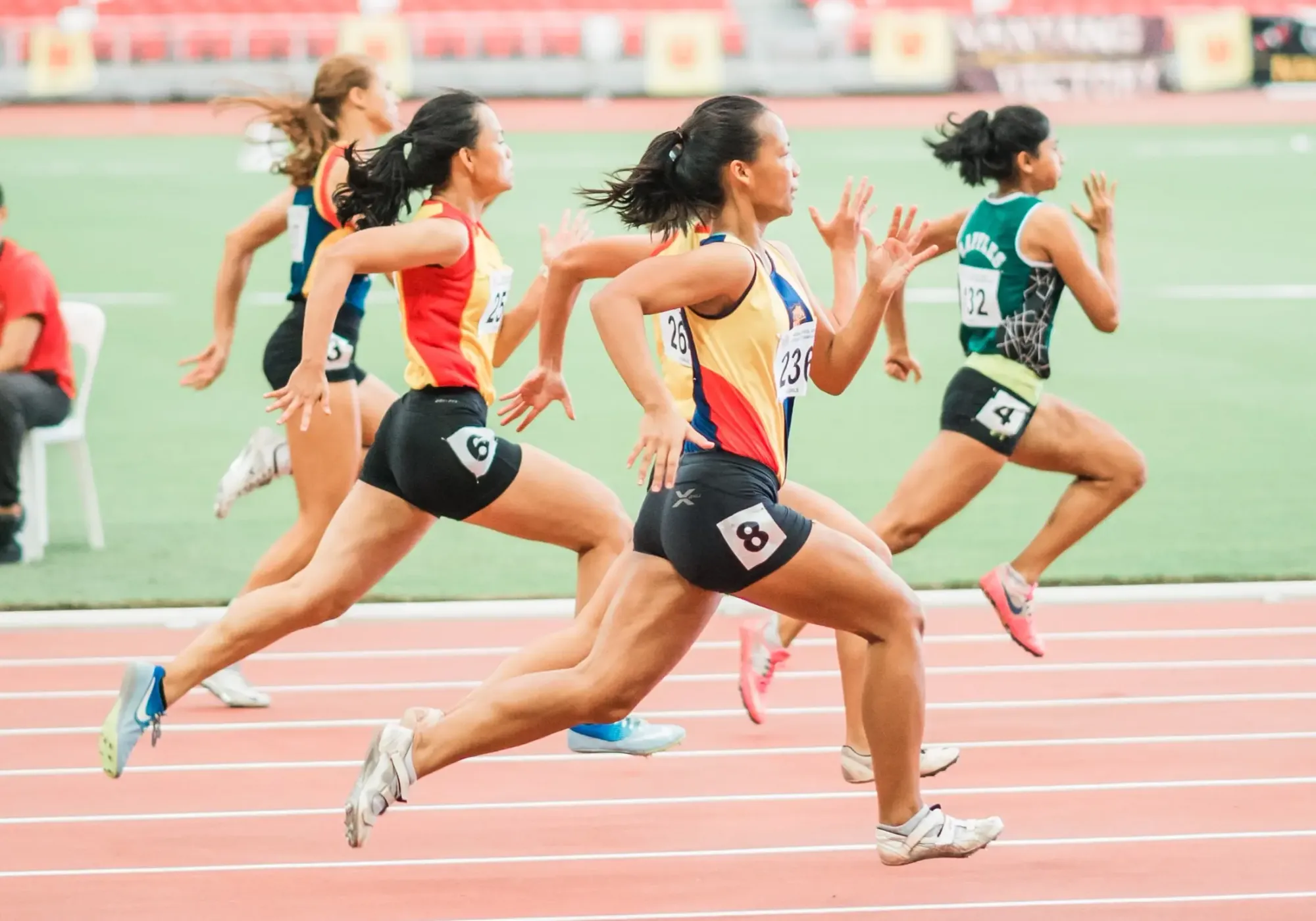
Effective World Records for 1-Mile Runs
The current world record for a mile run is 3:43 for men and 4.12 for women.
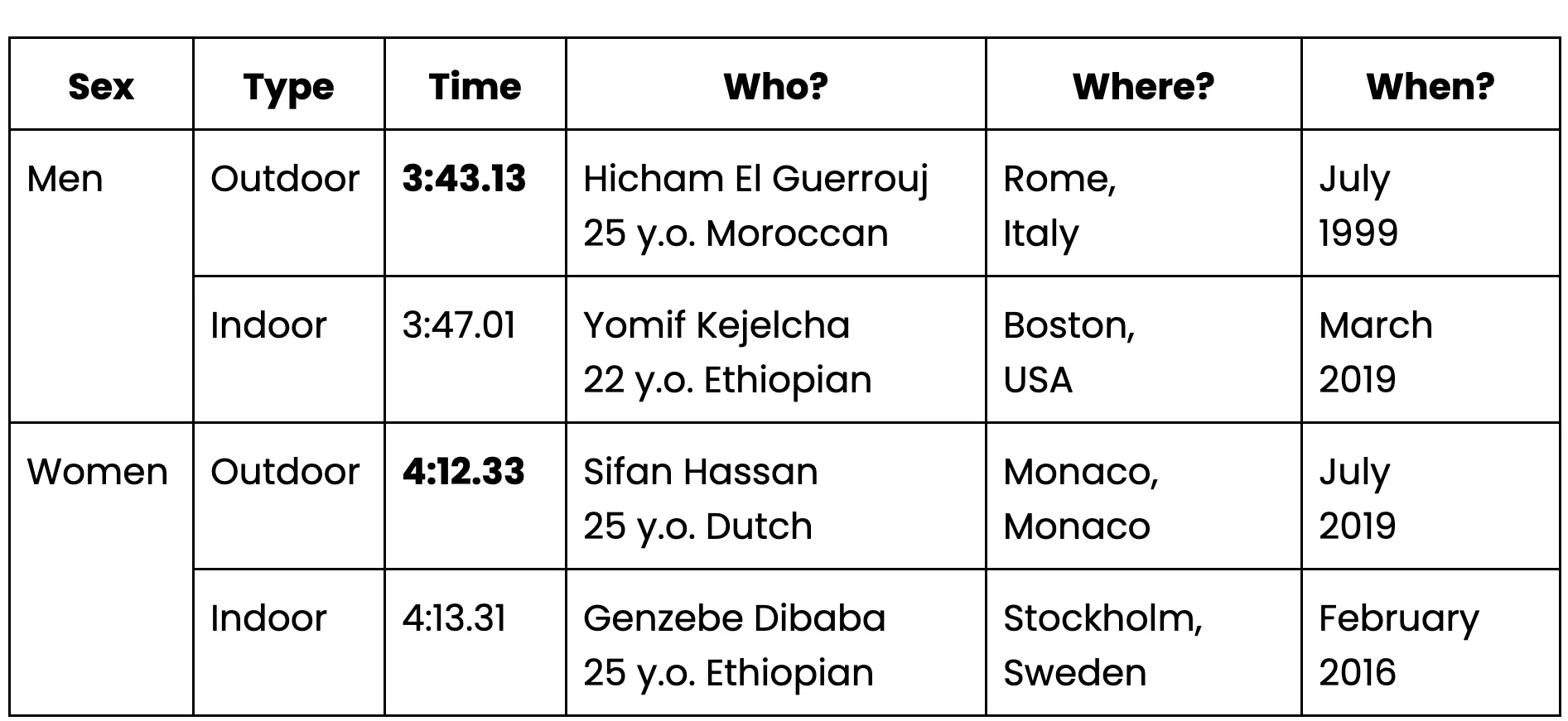
Source: worldathletics.org/records/by-category/world-records
So, elite athletes can run a mile in less than 4:30 minutes. It equals more than 13.3 mph speed on a treadmill. They compete for the podium and prizes and can set course records.
How to time your mile and pick a goal that fits
Average mile times are useful, but only if you test your own mile the same way each time. A track is the simplest option because the distance is fixed. A flat, straight path works too if you can measure it.
Before you start, warm up for five to 10 minutes with an easy jog or brisk walk. Then do two short faster strides (about 15 to 20 seconds) to wake up your legs. Start your timer and run one mile at “hard but controlled.” You should feel pushed, but not like you sprinted the first 200 meters.
Try to pace it evenly. If you run on a 400-meter track, use lap splits to stay honest: divide your goal time by four.
- 10:00 mile, aim for 2:30 per lap
- 9:00 mile, aim for 2:15 per lap
- 8:00 mile, aim for 2:00 per lap
If you go out faster than your target by more than a few seconds, back off and reset your rhythm. If you’re a little slow at halfway, tighten the pace in the final two laps.
After the mile, walk or jog for a few minutes, then write down the basics: surface, weather, shoes, and how it felt. Mile times bounce around from day to day, so a single attempt can mislead you. If you want a cleaner baseline, run a second timed mile a week later and use the faster result.
For treadmill runners, the display is in mph. A quick conversion is 60 divided by your mile time in minutes. For example, a 10-minute mile is 6.0 mph, a nine-minute mile is 6.7 mph, and an eight-minute mile is 7.5 mph. Retest every three to four weeks and target a small step, like 10 to 30 seconds faster, rather than a huge leap. If you want more conversions, our treadmill pace chart can help.
Factors that Affect the Time It Takes to Run a Mile
Several factors affect the time it takes to run one mile. These include:
- Body shape and fitness level. The fitter you are, the faster and longer you can move. Excessive weight can also limit your running capabilities. If you're not in good shape, starting slowly and gradually increasing your distance and pace is essential.
- Age. As we get older, our bodies naturally slow down, and it takes longer to run a mile. However, regular exercise and training can help offset the effects of aging. Moreover, you can encounter a lot of runners much older than you that can quickly overtake you on a race. Physical fitness and sports background beat age difference.
- Gender. Men tend to have an advantage over women in running a mile due to differences in muscle mass and cardiovascular fitness. It doesn't mean women can't overtake men on a race; just men have an unfair natural advantage in speed. However, consistent practice and good physical shape can neglect the difference and change the status quo.
- Training and preparation. The more you train and prepare for running a mile, the better your time will be. A proper training program combined with enough rest makes a change. They say, hard work beats talent when talent doesn't work hard.
Note that everyone's body is different and that there is no "normal" time for running a mile. Genetics, overall health, and previous injuries can also affect your pace and endurance. It's essential to focus on improving your best and not compare yourself to others.
How to improve your mile time
There are several things you can do to improve your mile time. These include:
- Comprehensive training program. Incorporating strength training will build your muscle. Special running exercises and workouts in your training schedule can improve your speed and endurance. Rest and recovery, like enough sleep and stretching exercises, are essential for muscle recovery and preventing injuries. Lastly, gradually increasing the difficulty of your training, such as jogging a longer distance and running at a faster pace, can help you avoid a plateau in your progress and sustainably bet your personal best.
- Proper technique. A good jogging technique can help you run more efficiently and prevent injury. It includes maintaining a straight posture, landing on the midfoot, keeping your arms at a 45° angle at your sides, and not over-striding.
- Appropriate running shoes. Comfortable and lightweight running shoes will help you keep up the pace and maintain the speed longer. Proper size and fit are essential to keep your feet securely locked and prevent common injuries. Lastly, proper sneakers, regardless of brand, are good for 600 miles. Afterward, it is dangerous to use them for running and needs to be replaced.
- Diet and nutrition. Eating a well-balanced diet high in carbs and protein will fuel your body and ensure high performance. Proper hydration is also essential—drink at least 2 liters of water a day and even more on workout days.
Lastly, improvement takes time and consistency. Setting realistic goals, tracking your progress, and staying encouraged when you don't see an immediate improvement is the key to how long it will take you to run a mile.
This article is a part of our “Average Running Time” series. For more information about the average time it takes to run different distances, see the other articles from the series:
Average Time to Run 3 Miles
Average Time to Run 10K
Average Time to Run Half-Marathon
Average Time to Run Marathon
FAQs about average mile time
What counts as an “average” mile time?
An average mile time is simply how long it takes you to cover one mile at a given effort. Some people mean their everyday easy pace, others mean a hard one-mile test. When you compare times, compare the same effort level and similar conditions.
What’s a good mile time for a recreational runner?
A good mile time is one you can repeat without wrecking the next day’s training. Many fitness runners land somewhere around 8 to 12 minutes when running steadily, but your baseline matters more than a chart. Track your own trend over weeks, not one single run.
How should I pace a one-mile time trial?
Start controlled, then build, because going out too fast usually backfires. Warm up for 10 to 15 minutes, add a few short pickups, then settle into a hard but sustainable effort. Try to finish the last quarter-mile as your fastest segment.
Why is my treadmill mile faster than my outdoor mile?
Treadmills remove wind and hills, and the belt speed may not match what the display says. Outside, heat, turns, terrain, and stoplights all slow you down. If you want a clean comparison, test on the same route, or use a track for your mile checks.
How long does it take to improve your mile time?
Most runners notice change in four to eight weeks with steady training. You improve faster when you run easy most days and add one focused speed session each week. Big jumps usually come from consistency, not one hard workout.
What workouts help lower my mile time?
One weekly interval workout can help, as long as you keep the rest of your runs easy. A simple option is six to eight repeats of 400 meters at a hard, controlled effort, with easy jogging between. Pair that with easy mileage and a few short strides after easy runs.
Is it normal for my mile pace to change from day to day?
Yes, day-to-day pace swings are normal, even when your fitness stays the same. Sleep, stress, weather, hills, and sore legs can all shift your pace. Look at your average pace on similar runs, over two to four weeks.
When should I stop a mile test and get checked out?
Stop if you feel chest pain, faintness, severe shortness of breath that does not ease, or a new heart rhythm that feels wrong. Also stop for sharp pain that changes your stride, or swelling that builds fast. When in doubt, back off, recover, and talk with a clinician.

